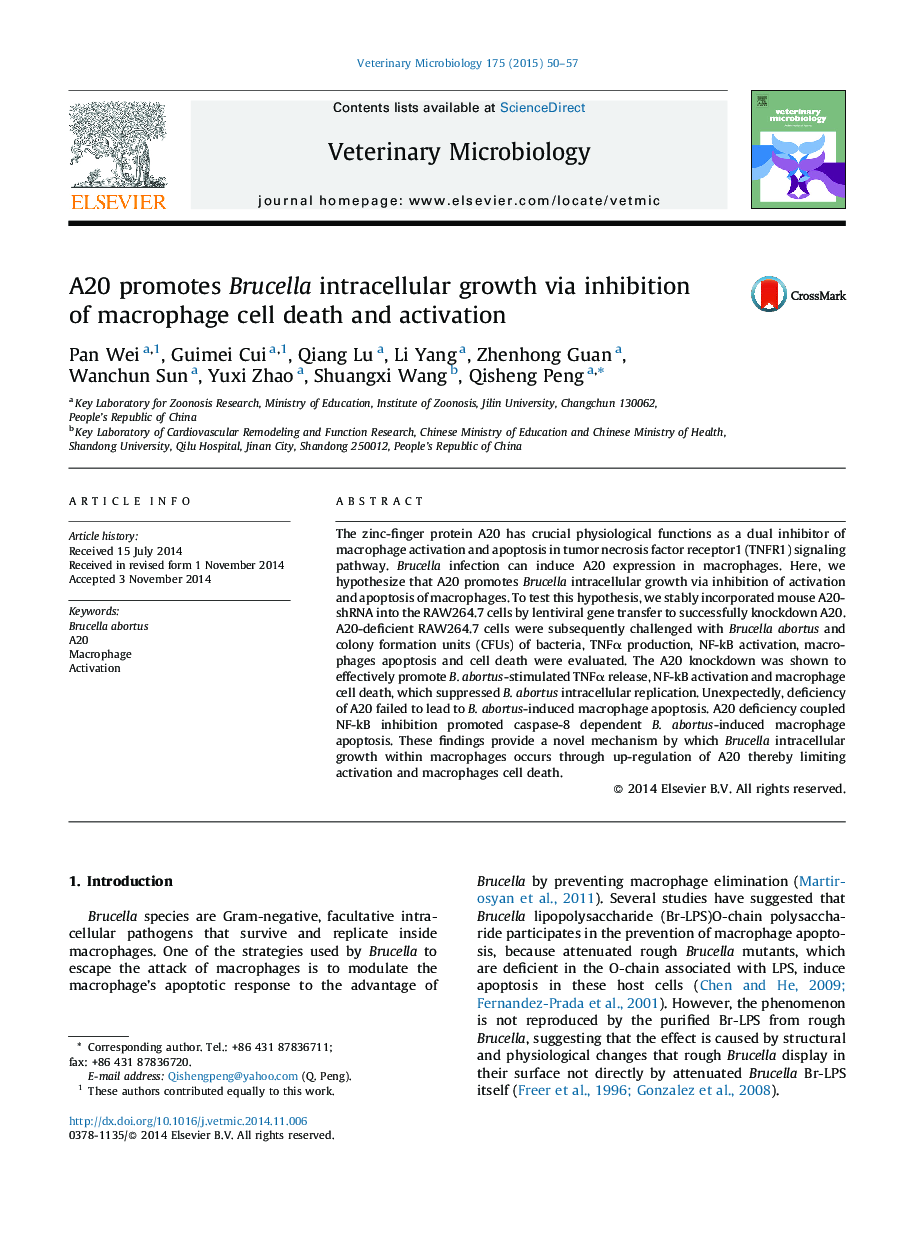| Article ID | Journal | Published Year | Pages | File Type |
|---|---|---|---|---|
| 2466561 | Veterinary Microbiology | 2015 | 8 Pages |
•Brucella induced A20 in RAW264.7 cells inhibits NF-κB activation.•A20 deficiency suppresses Brucella growth within macrophages.•A20 involves protecting against apoptosis of Brucella-infected macrophages.•A20 protects Brucella-infected RAW264.7 cells from death.
The zinc-finger protein A20 has crucial physiological functions as a dual inhibitor of macrophage activation and apoptosis in tumor necrosis factor receptor1 (TNFR1) signaling pathway. Brucella infection can induce A20 expression in macrophages. Here, we hypothesize that A20 promotes Brucella intracellular growth via inhibition of activation and apoptosis of macrophages. To test this hypothesis, we stably incorporated mouse A20-shRNA into the RAW264.7 cells by lentiviral gene transfer to successfully knockdown A20. A20-deficient RAW264.7 cells were subsequently challenged with Brucella abortus and colony formation units (CFUs) of bacteria, TNFα production, NF-kB activation, macrophages apoptosis and cell death were evaluated. The A20 knockdown was shown to effectively promote B. abortus-stimulated TNFα release, NF-kB activation and macrophage cell death, which suppressed B. abortus intracellular replication. Unexpectedly, deficiency of A20 failed to lead to B. abortus-induced macrophage apoptosis. A20 deficiency coupled NF-kB inhibition promoted caspase-8 dependent B. abortus-induced macrophage apoptosis. These findings provide a novel mechanism by which Brucella intracellular growth within macrophages occurs through up-regulation of A20 thereby limiting activation and macrophages cell death.
